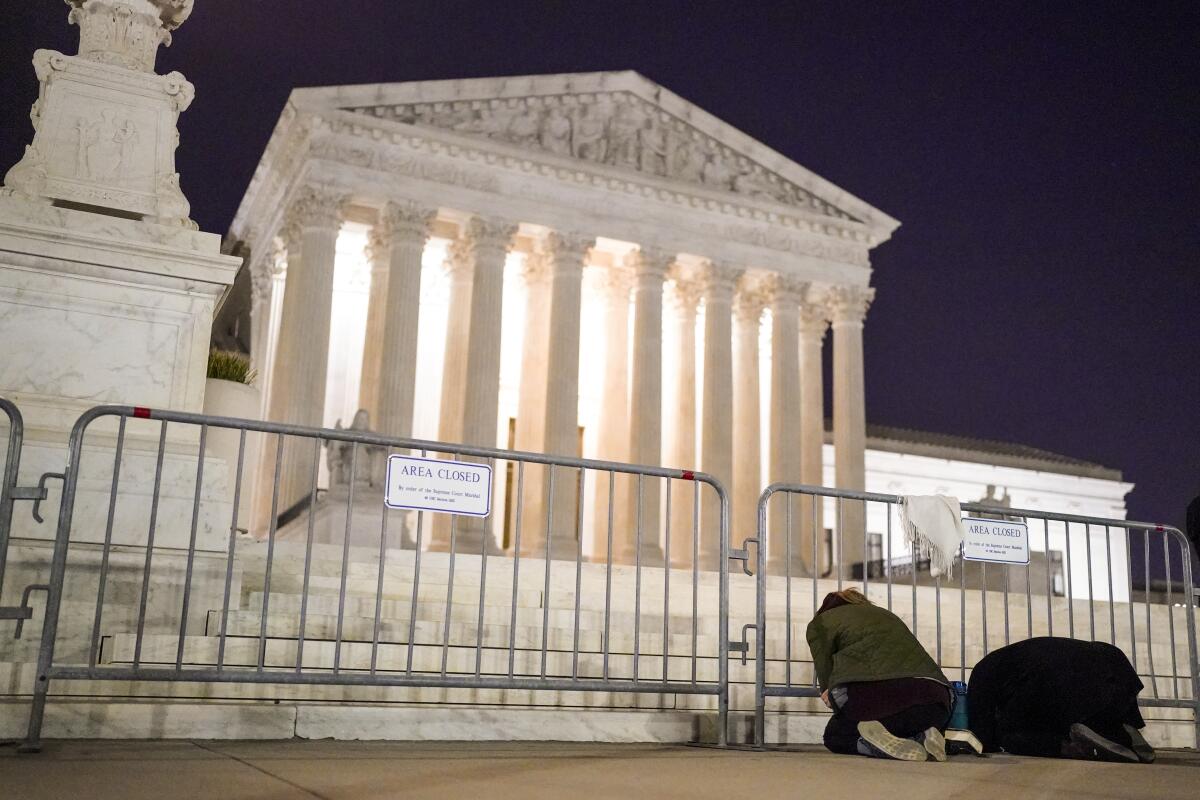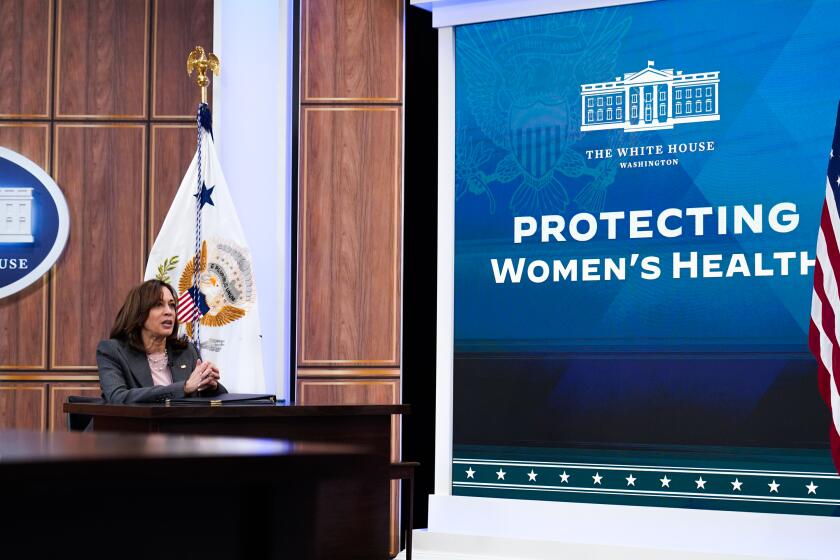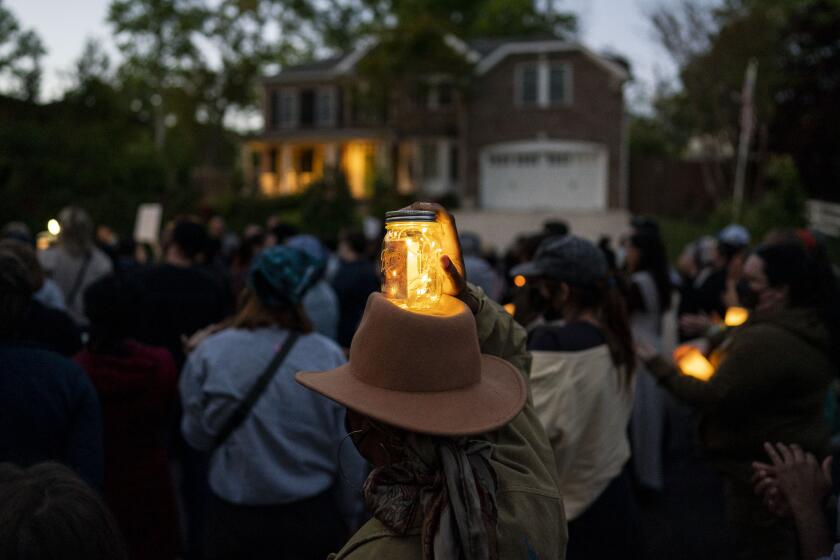Essential Politics: Supreme Court jettisons Roe vs. Wade

- Share via
Fight over abortion enters new phase
Hello, it’s Erin B. Logan with a special report on a seismic decision Friday out of Washington. The Supreme Court overturned the landmark abortion Roe vs. Wade decision, ruling that states may outlaw abortion — a decision certain to spark fierce political and legal battles across the country over efforts to restrict or ban the procedure.
The opinion marks the first time in the court’s history that the court has so significantly curtailed an established constitutional right.
The decision, penned by Justice Samuel A. Alito Jr., mostly tracks the draft opinion that was leaked and published by Politico early last month, empowering states to further restrict and prohibit abortion.
If you want to learn more about the ruling from the best Supreme Court writer in the business, read this smart take by The Times’ David G. Savage.
The court’s most conservative justices joined forces to accomplish a long-sought goal of overturning Roe vs. Wade, which in 1972 established the right to an abortion. In recent decades, conservatives have steadily chipped away at Roe and have sought to appoint judges to the federal courts who would be willing to toss it aside.
Dissenting were the court’s three liberal justices. Chief Justice John G. Roberts Jr. concurred but did not join the majority opinion.
Opinion polls show most Americans support access to abortion, at least in the early months of pregnancy, but half the states are expected to seek to enforce laws that make most abortions illegal.
I know it’s a lot to digest. So here are some helpful stories from our coverage that helps explain the ruling’s significance:
- Savage outlined the history of abortion rights, detailing the procedure’s legal journey from the 19th century to the present day.
- Times staff writer Molly Hennessy-Fiske earlier this month dug into how the antiabortion movement was helping to expand pregnancy centers. These centers seek to persuade “abortion-minded” women to reconsider their choice by offering to support them through, and after, their pregnancies. Abortion rights advocates have accused these facilities of deceiving women by setting up shop next to abortion clinics and dressing staff in doctors’ coats and surgical scrubs despite being exempt from medical standards of care and monitoring.
- Earlier this month, Times staff writers Jennifer Haberkorn and Emily Alpert Reyes wrote about how the U.S. recorded its first significant increase in the abortion rate in more than three decades. The rate rose 7%, from 13.5 abortions per 1,000 women and girls of child-bearing age in 2017 to 14.4 in 2020, according to the Guttmacher Institute. Overall, there were 930,160 abortions in the United States in 2020, up 8% from 862,320 in 2017.
Kamala Harris says that if Roe falls, it will be the first time in at least five decades that Americans would have a right once promised taken away.
Sign up for our California Politics newsletter to get the best of The Times’ state politics reporting. And don’t forget to follow me on Twitter for updates about my adorable dog Kacey and to share pictures of your adorable furbabies with me at [email protected].
It wasn’t the first time protests targeted officials’ homes, but they still shocked many in the Washington establishment. Is this strategy effective in swaying public opinion?
Get the L.A. Times Politics newsletter
Deeply reported insights into legislation, politics and policy from Sacramento, Washington and beyond. In your inbox three times per week.
You may occasionally receive promotional content from the Los Angeles Times.






